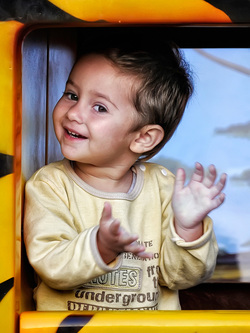
This means we need to separate our children from their behaviors. There is a significant difference between 'you are bad' and 'you did something bad'. And, no, it's not just semantics.
Shame corrodes the part of us that believes we can do better and be better. When we name and label our children, we take away their opportunity to grow and try on new behaviors. If a child tells a lie, she or he can change that behavior. If she or he is a liar--where's the potential for change in that kid?
Cultivating more guilt self-talk and less shame self-talk requires how we discipline and talk to our children. But, it is also means explaining these concepts to our kids. Children are very receptive to talking about shame if we're willing to do it. By the time they're four and five, we can explain to them the difference between shame and guilt, and how much we love them even when they make bad choices.
Shame is so painful for children because it is inextricably linked to the fear of being unlovable. For young children who are still dependent on their parents for survival--for food, shelter, and safety--feeling unlovable is a threat to survival. It's trauma. The reason most of us revert back to feeling childlike and small when we're in shame is because our brain stores our early shame experiences as trauma, and when it's triggered we return to that place.
" I don't know what happened. My boss called me an idiot in front of my team and I couldn't respond. All of a sudden, I'm back in Mrs. Porter's second grade class and I'm speechless and frozen in fear. I can't come back with one decent response."
We can work hard not to use shame as a parenting tool, but our children are still going to encounter shame in the outside world. The good news is that when children understand the distinction between shame and guilt, and when they know that we're interested and open to talking about these feelings and experiences, they are much more likely to talk to us about the shaming experiences they may encounter with teachers, coaches, clergy, babysitters, grandparents, and other adult who have influence in their lives.
Daring Greatly, Brene Brown
 RSS Feed
RSS Feed
